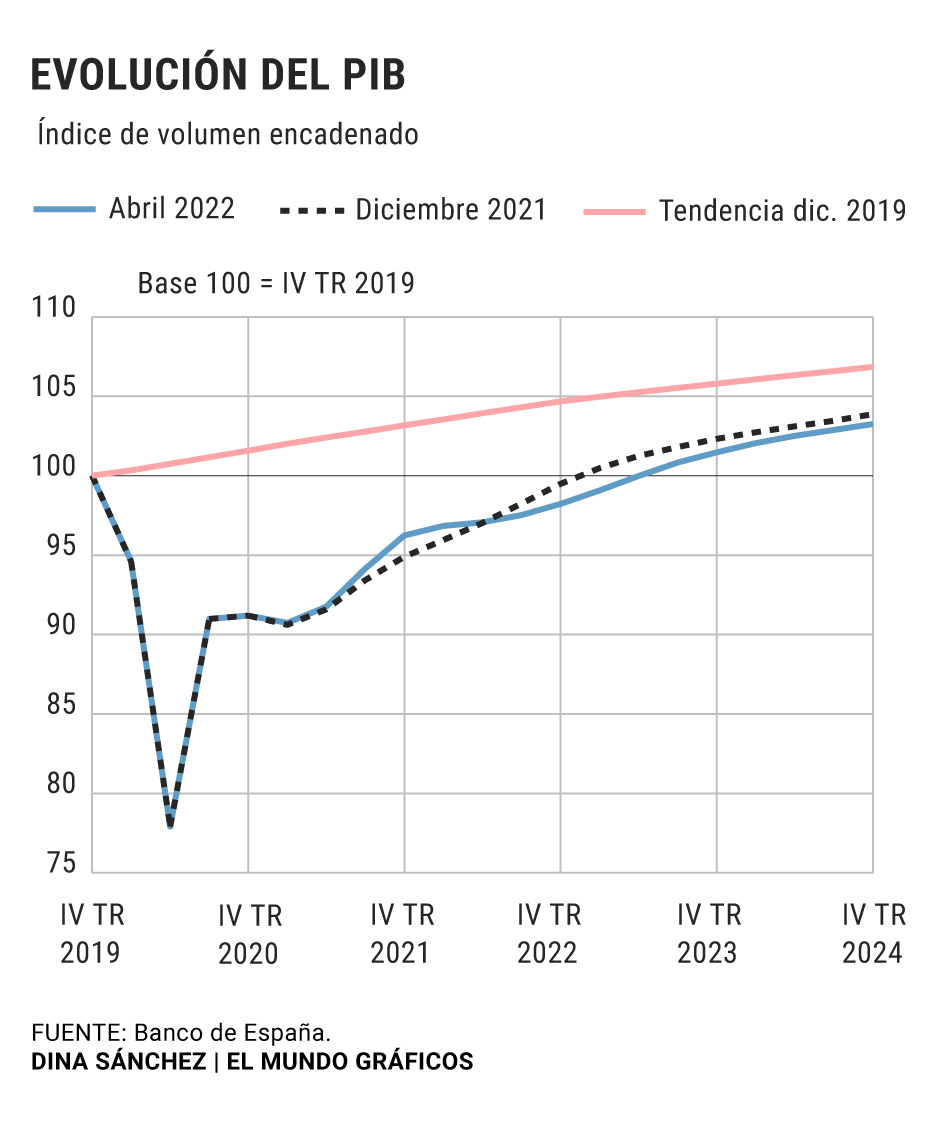Crisis The Bank of Spain doubles its annual inflation forecast and warns of a runaway CPI at least until July
The invasion of the Ukraine by Russia is going to truncate the economic recovery.
This is made clear by the Bank of Spain, which yesterday already announced that the Spanish economy will have to wait
until the third quarter of 2023
to return to pre-pandemic levels.
In no case will it be possible to arrive in 2022, which was the year promised by the Government after the whole of the euro zone already achieved that milestone last year.
“
Temporary delay
”, specifically described it by Ángel Gavilán, the new head of economic forecasts at the BdE, who added that in the observed period, that is, until 2024, the figures will converge.
Which will almost reach the same point.
But delay, in short, which will also especially affect "
vulnerable households
", as he added.
to the lowest incomes.
In addition, in the graphs used by Gavilán for his presentation, it can be seen, very clearly, how in that year 2024 the Spanish economy will still be far from the growth that it would have registered if the pandemic had not broken out.
And the Director General of Economy and Statistics himself stressed that the "disturbance" that the war entails hits the Spanish economy when "it has not yet recovered" from the previous one.
The forecast of the Bank of Spain, therefore, collides with that of the Executive and, specifically, with that of the First Vice President and Minister of Economic Affairs, Nadia Calviño, who in the press conference after the Council of Ministers held yesterday discussed of downplaying the body's warnings.
"There is a great deal of agreement that Putin's war
may slow economic recovery
but does not put it at risk .
", he claimed.
And although he admitted that at the end of the month the Government will be forced to "significantly" worsen the forecasts that it sends to Brussels, he stressed that message that the economy will continue to advance strongly.
He did not point out anything about the impact that the delay in the recovery will have on low incomes, nor that this same segment of society is the one that is suffering the most from inflation.
This was also made clear by the BdE which, in its economic forecasts for the first quarter of the year, highlights the "decrease in purchasing power" that the population is suffering as a result of inflation.
"In particular,
the purchasing power of lower-income households
, for whom spending on energy goods represents a higher proportion of the total, will be affected," the aforementioned document points out, adding: "In addition, the rates of The savings of these households are usually comparatively smaller and the proportion of them that has been able to accumulate extraordinary savings during the pandemic is more limited, so they have less margin to cushion the effect of the increase in the energy bill without adjusting their budget downwards. consumption of other goods and services.
Bank of Spain forecasts 2022. GDP
Precisely the savings accumulated during the pandemic, and speaking in terms of the population as a whole, is one of the factors that explains the less vigorous recovery.
Exactly, savings and inflation, because the BdE expects families to resort more intensely to these funds than it pointed out in December.
But these amounts
now have less purchasing power
as a result of inflation and, therefore, will support consumption and the economy to a lesser extent.
Conforms to The Trust Project criteria
Know more
Crisis

